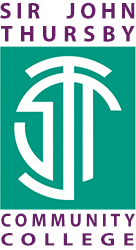Year 7 term 1 boys Physical Education
| Physical Education | |||
| Topic | Health & Fitness | ||
| No of lessons | 6-8 | ||
| When is it happening | Term1 Year 7 | ||
| What will students learn | How to test themselves for aspects of Health and Skill Aspects of Fitness, (Strength, Cardiovascular fitness, explosive strength, flexibility and coordination) Students will then concentrate on the aspect of Cardiovascular fitness and show competency in improving this through continuous and fartlek training. Students will learn how to interpret their levels of activity using the Borgs Scale of perceived exhaustion. Students will also learn to monitor resting, working and recovery heart rate values. | ||
| Key Knowledge that students should know at the end of 'Topic' | This is the knowledge that students will meet for the first time in this topic | The aspects of Health Related Fitness. Cardiovascular fitness and its association with health. Fitness testing as a record of Health Related Fitness. Students will also understand and put into practice the Borg Scale of Received Exertion. Understanding of continuous and fartlek training. | |
| This is knowledge that students may have met before but will need to deepen their understanding |
Heart rate values and measuring. Referencing Borg Scale. Cardiovascular fitness and its relationship to health. |
||
| Key Skills that students should be able to demonstrate at the end of 'Topic' | This is the skills that students will meet for the first time in this topic | Be able to take heart rate values, (Resting, Working and Recovery) Develop knowledge of Borg Scale in order to maintain moderate to high levels of exertion. Demonstrate ability to utilise fitness tests for Health Related Aspects and Coordination. Show levels of competency when training, competency developing levels of cardiovascular fitness. | |
| This is skills that students may have met before but will need to develop |
|
||
| Key vocabulary that students should know and understand |
Cardiovascular fitness, Application of the Borg Scale, Heart rate, Resting, Working, Recovery, Continuous, Pace, Fartlek training. Cardiovascular fitness. |
||
| The Big Question | Why is cardiovascular fitness so important? | ||
|
Key questions that students should be able to answer at the end of the 'Topic' |
What is resting heart rate? What is working heart rate? What is recovery heart rate? | ||
| How do you record heart rate? | |||
| What is cardiovascular fitness? Why do we need cardiovascular fitness for physical activity and in our everyday lives? | |||
| What is the Borgs scale of perceived exhaustion? Can we use this to ensure we are working at moderate levels of activity to improve Cardiovascular fitness? | |||
| Why do we use tests to try and record or understand different aspects of Health Related Fitness? | |||
| How does continuous training help with improving cardiovascular fitness? | |||
| How long can you keep going during continuous training? | |||
| How could you try and improve your own level of cardiovascular fitness independently? | |||
| How would you know your cardiovascular fitness has improved? | |||
| What is fartlek training? | |||
